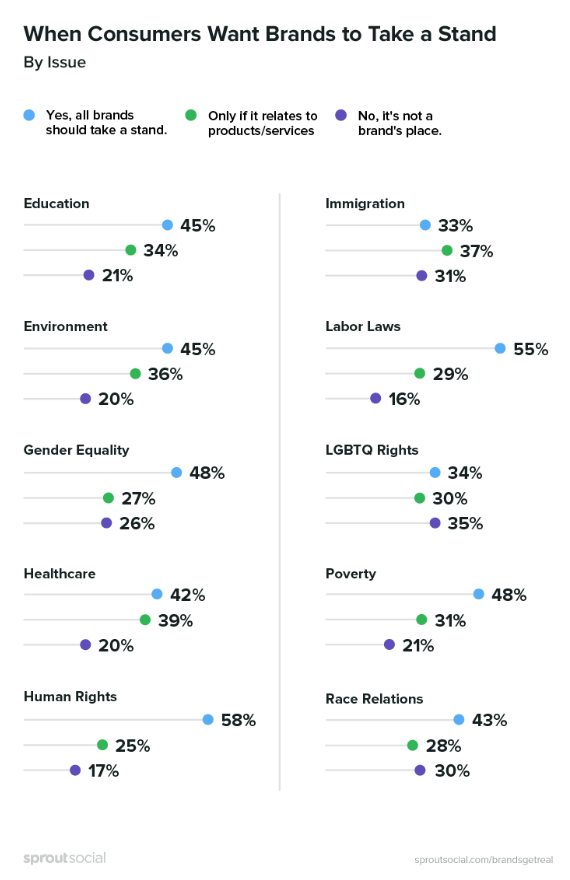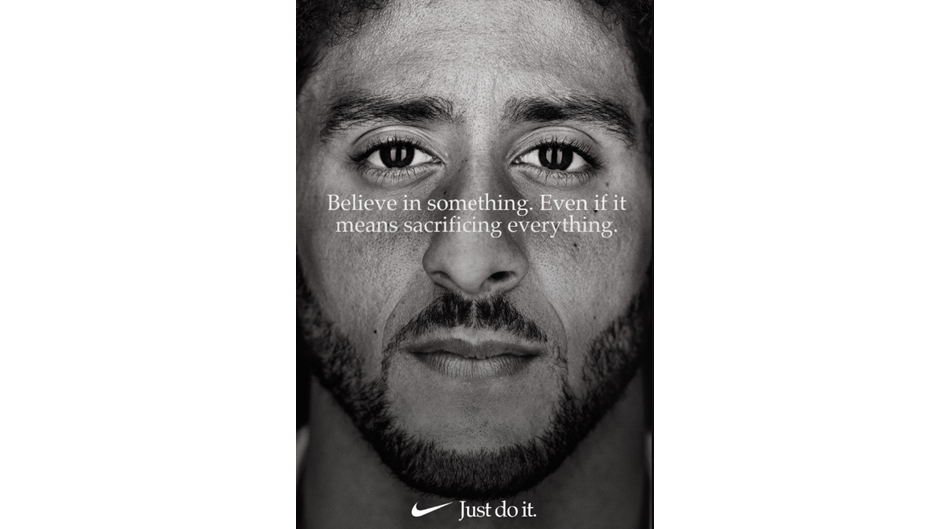by Christian Sarkar & Philip Kotler
Marketing today means brands must stand for something– even if it means sacrificing a segment of their customers in order to be cool with the segment they are consciously targeting. Sadly, but predictably, the political polarization of the market by politicians and their followers is forcing companies to examine their values and take a visible stand. This past week has seen Nike step up and make what analysts are calling a “risky” values-based branding bet. As we mentioned earlier, stakeholders around the world, especially millennials, now expect businesses to engage in progressive brand activism.
When Nike decided to make Colin Kaepernick the face of the 30th anniversary commemoration of their Just Do It campaign, they became a leader in brand activism overnight.
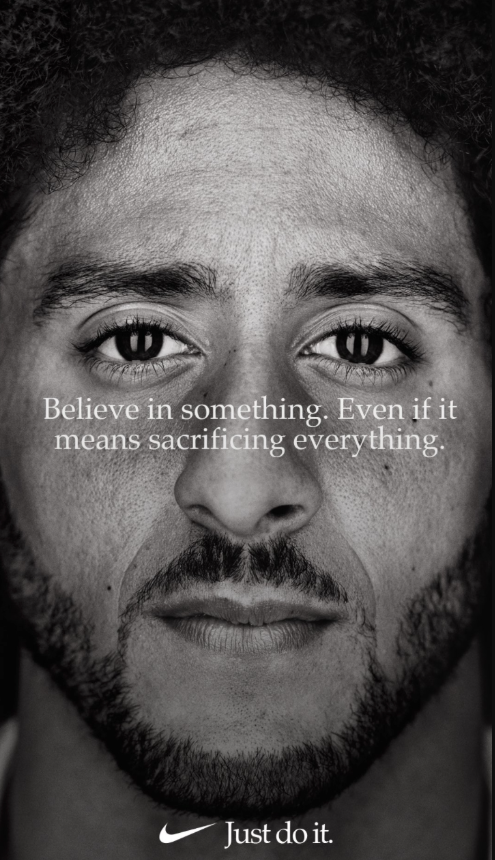
By taking a public stand against President Trump and, to some extent, the NFL, Nike has rekindled the national debate over rights, patriotism, and the politicization of sports. The initial reaction was shrill and predictable. President Trump engaged his followers in bashing Nike, and once again created a moment of polarization and divisiveness:
Just like the NFL, whose ratings have gone WAY DOWN, Nike is getting absolutely killed with anger and boycotts. I wonder if they had any idea that it would be this way? As far as the NFL is concerned, I just find it hard to watch, and always will, until they stand for the FLAG!
— Donald J. Trump (@realDonaldTrump) September 5, 2018
A few “patriots” burned their Nike shoes or cut the Nike logo off their merchandise. Analysts like Professor Scott Galloway, for example, had a different take:
Within less than 24 hours since Kaepernick first revealed the spot on Twitter, Bloomberg reports that Nike received more than $43 million worth of media exposure.
Most tellingly, Nike’s online sales jumped 31%in the four-day period following Kaepernick’s announcement. Nike’s stock price dipped but then came back, despite some threatening to boycott the company. And Nike ran this ad during the NFL game in prime-time:
Believe in something. Even if it means sacrificing everything. #JustDoItpic.twitter.com/x5TnU7Z51i
— Colin Kaepernick (@Kaepernick7) September 5, 2018
Why is brand activism the next logical step for purpose-driven or values-based companies?
Because actions speak louder than words (or ads). Also, it can be profitable. In some cases, taking a stand is a strategic move that improves profits. The first step is to examine where your brand-values place your company and your target customers on this chart:
Is Brand Activism Good for Business?
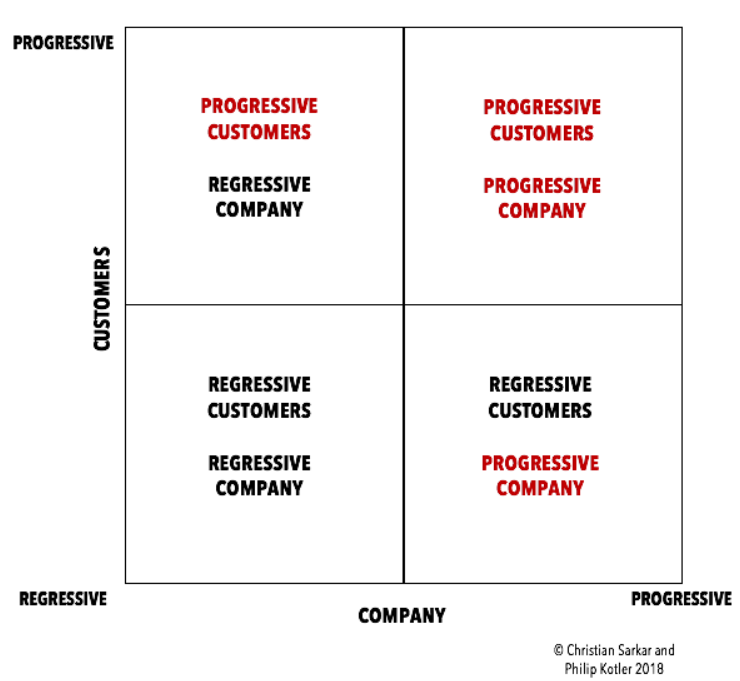
In Nike’s case, the chart would look something like this:

The progressive customers (Generation Z and millennials) buy more Nike products (Just Do It), while regressive customers protest (Just Burn It).
Here are the numbers, via Scott Galloway, who says:
Nike registers $35B in revenues — $15B domestically and $20B abroad. Two-thirds of Nike consumers are under the age of 35. A younger consumer who can afford $150 Flyknit racers likely has substantial disposable income and lives in a city. The term for this cohort? Progressive. Of the $20B international customer base, how many believe the US is currently a “beacon on a hill” and is handling race issues well? I’ll speculate, none. Nike has risked $1-3B in business to strengthen their relationship with consumers who account for $32-34B of their franchise. The math? Nike just did it.
What this means is that companies must understand the trajectory of the customer’s social beliefs, and race to meet them. The leaders will, in all probability, profit over the laggards.
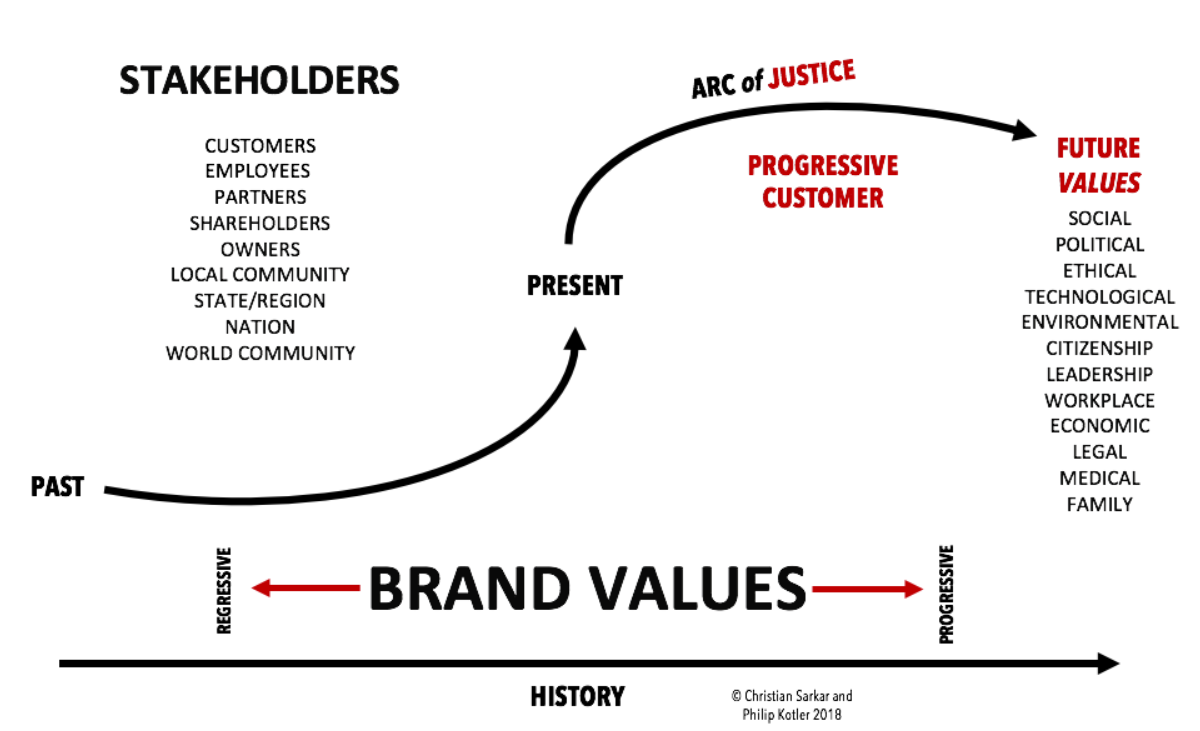
What does the data say? A survey by Sprout Socialreveals these key findings:
What’s more the survey also discovers that respondents want brands to take stands depending on the issue:
And, in terms of leadership, another survey by BRANDfog and McPherson Strategies tells us that 93% of respondents agree: “When CEOs issue statements about the key social issues of our time and I agree with the sentiment, I am more likely to make a purchase from that company.” 86% of people think that CEOs who publicly defend the rights of others on social media are seen as great leaders.
So where does this leave Nike? As Nike starts down this road of brand activism, they are going to have to be more progressive in order to combat the image of exploitative sweatshop labor and gender inequality in the workplace. Nike’s progressive customers would not have it any other way.
What Do Consumers Want?
